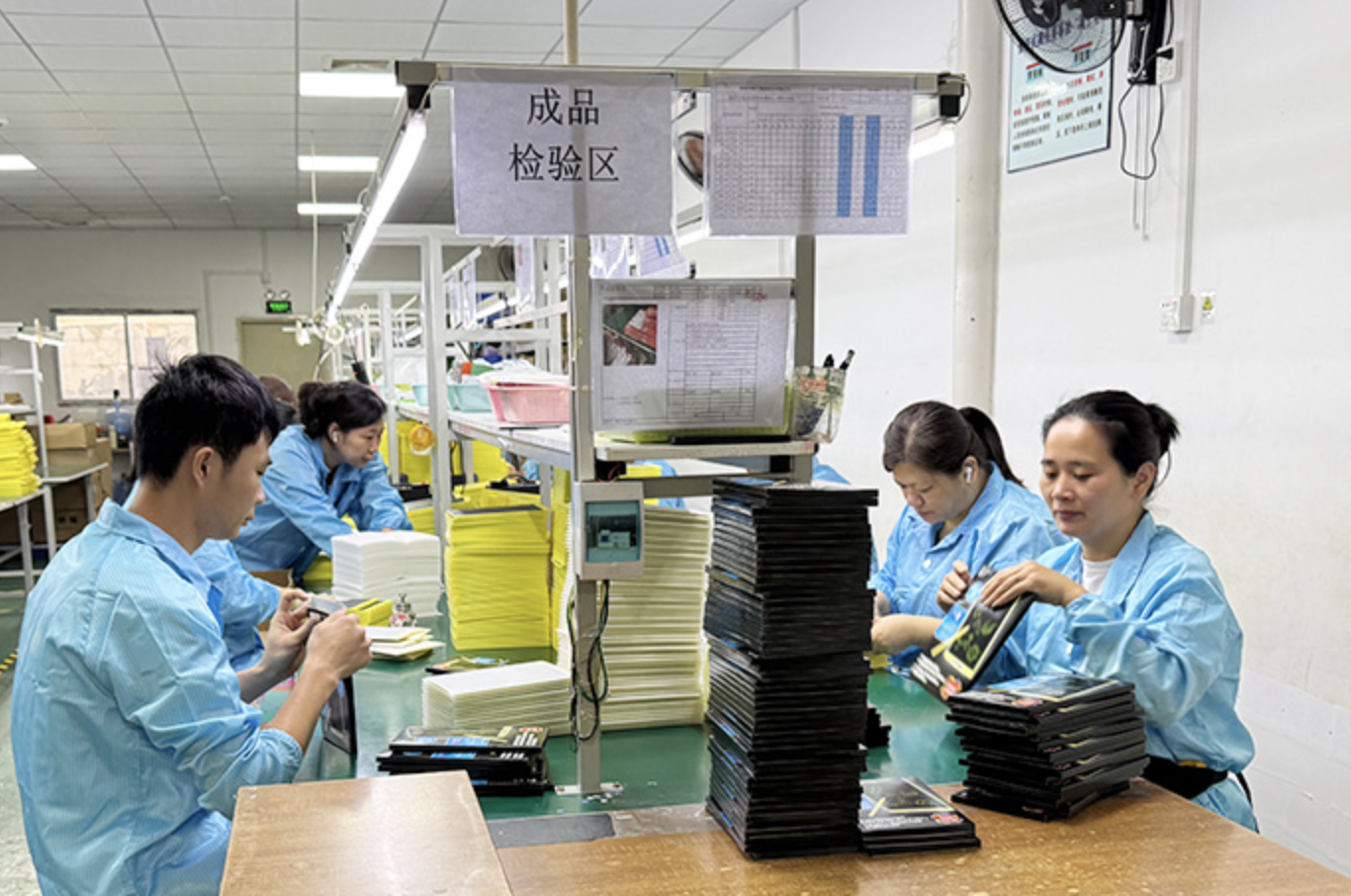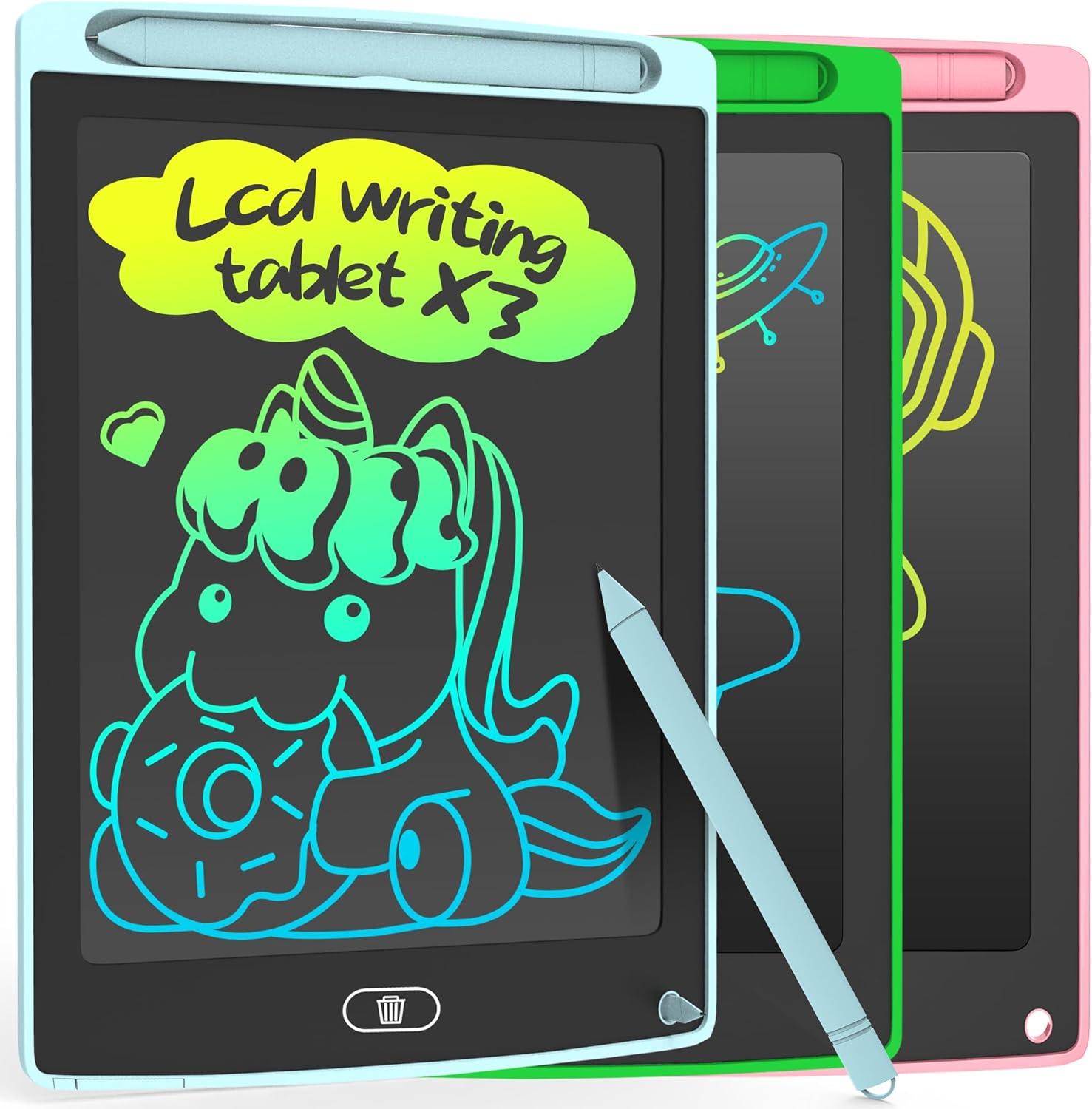How to Evaluate and Select the Right Digital Writing Board Manufacturer?
Choosing the wrong manufacturer can destroy your business through quality issues, delivery delays, and compliance problems. Many businesses fail because they focus only on price without evaluating critical manufacturing capabilities.
Evaluate manufacturing capacity, certifications, customization flexibility, quality systems, and technical innovation capabilities when selecting digital writing board manufacturers. Focus on factories with proven track records, complete certifications, and flexible MOQ options.
I learned this lesson the hard way when my first manufacturer promised everything but delivered disaster. They had no certifications, poor quality control, and couldn’t handle our modest 500-piece order. This experience taught me to thoroughly evaluate manufacturers before committing to partnerships.
Key Capabilities to Look for in LCD Writing Tablet Manufacturers?
Manufacturing capabilities determine whether your supplier can deliver quality products consistently and support your business growth. Inadequate capabilities lead to production delays, quality issues, and lost market opportunities.
Prioritize manufacturers with complete certifications, flexible production capacity, technical innovation abilities, and comprehensive quality management systems. These capabilities ensure reliable supply chain partnerships and product success.
!
My breakthrough came when I found a manufacturer with genuine innovation capabilities. They didn’t just produce standard products but developed magnetic nano microcapsule whiteboard technology that gave us unique market positioning. This partnership transformed our business from commodity selling to premium product leadership.
Production capacity evaluation starts with understanding daily output capabilities and scalability options. Reliable manufacturers should demonstrate consistent production volumes with room for growth. Our facility produces 20,000 units daily, providing stable supply for both small and large orders without capacity constraints.
Technical innovation capabilities separate commodity manufacturers from industry leaders. Look for manufacturers developing proprietary technologies, filing patents, and investing in research and development. Innovation capabilities indicate long-term partnership potential and competitive advantage development.
Quality management systems verification ensures consistent product quality and regulatory compliance. ISO 9001 certification1 demonstrates systematic quality control, while BSCI certification confirms ethical manufacturing practices. These certifications provide assurance for international market entry and brand protection.
Facility infrastructure assessment includes factory size, equipment quality, and operational efficiency. A 2000 square meter facility with modern equipment indicates serious manufacturing commitment, while cramped operations suggest potential quality and capacity limitations.
Manufacturing Capability Assessment
| Capability | Requirements | Verification Method | Impact Level |
|---|---|---|---|
| Daily Capacity | 10,000+ units | Factory tour, production records | Critical |
| Quality Systems | ISO 9001, BSCI | Certificate verification | Critical |
| Technical Innovation | R&D department, patents | Portfolio review | High |
| Certifications | CE, RoHS, EN71, UL4000 | Document verification | Critical |
| Facility Scale | 1500+ sqm, modern equipment | On-site inspection | Medium |
| Employee Count | 30+ skilled workers | HR documentation | Medium |
Workforce stability and expertise affect product quality and delivery reliability. Experienced teams produce better results while stable employment reduces training costs and quality variations. Our 50+ employee team includes specialists in LCD technology, quality control, and product development.
Certification portfolio completeness ensures global market access and regulatory compliance. Essential certifications include CE marking for Europe, RoHS for hazardous substances, EN71 for toy safety, and UL4000 for North America. Complete certification eliminates market entry barriers and reduces compliance risks.
Supply chain integration capabilities affect material sourcing, cost control, and delivery reliability. Manufacturers with established supplier relationships and inventory management systems provide better service and pricing stability than those dependent on spot purchasing.
Manufacturing Capacity Evaluation: Ensuring Your Digital Writing Board Supplier Can Deliver?
Production capacity directly impacts your ability to fulfill orders, respond to market demands, and scale business growth. Insufficient capacity creates bottlenecks that limit market opportunities and damage customer relationships.
Assess daily production capacity, scalability options, equipment capabilities, and workforce stability to ensure manufacturers can meet current and future demand requirements. Focus on suppliers with proven capacity utilization and expansion capabilities.
Capacity evaluation became crucial when a major retailer wanted to place a 50,000-unit order with tight delivery requirements. Our previous supplier couldn’t handle the volume, but our current manufacturer’s 20,000 daily capacity made the order feasible and profitable. This experience highlighted capacity importance for business growth.
Daily output assessment begins with understanding actual production capabilities versus theoretical maximums. Reliable manufacturers should demonstrate consistent daily production with documentation showing capacity utilization rates and peak performance capabilities.
Equipment modernization levels affect production efficiency, quality consistency, and scalability potential. Modern automated equipment produces higher quality products with better consistency than manual operations, while also providing capacity expansion opportunities.
Workforce planning includes employee count, skill levels, and training programs that support consistent production quality. Our team of 50+ employees includes specialized technicians for different production stages, ensuring quality maintenance even during high-volume periods.
Production line flexibility determines ability to handle different product variants and order sizes efficiently. Flexible lines can switch between standard and custom products without major setup delays, supporting diverse customer requirements.
Quality control integration within production capacity ensures quality maintenance during high-volume production. Inline inspection systems and quality checkpoints prevent defective products from reaching customers while maintaining production speed.
Capacity Evaluation Metrics
- Daily production output with documentation
- Equipment utilization rates and efficiency measures
- Workforce stability and skill level assessment
- Production line flexibility for product variants
- Quality control integration within capacity
- Scalability options and expansion capabilities
- Peak production handling and surge capacity
Seasonal demand handling capabilities ensure suppliers can manage fluctuating order volumes without quality compromise. This includes understanding peak capacity limits and surge production capabilities during high-demand periods.
Inventory management systems support capacity planning and delivery reliability. Effective inventory systems balance material availability with storage costs while ensuring production continuity and order fulfillment capabilities.
Scalability planning includes expansion capabilities and investment willingness for growing partnerships. Manufacturers committed to growth demonstrate long-term partnership value and business development potential.Low MOQ Options from Professional Digital Writing Board Manufacturers?
Low minimum order quantities enable market testing, product development, and flexible inventory management for businesses without major capital commitments. High MOQs often prevent small businesses from accessing quality manufacturers and testing market opportunities.
Seek manufacturers offering MOQs between 300-1000 pieces for standard products and custom development options. Professional manufacturers with low MOQ capabilities provide market entry opportunities and business growth flexibility.
Low MOQ capability opened new business opportunities when we started accepting orders from small retailers and e-commerce sellers. Our ability to handle 300-1000 piece orders created a entire customer segment that competitors with high MOQs couldn’t serve, generating significant additional revenue streams.
MOQ flexibility assessment includes understanding minimum quantities for different product categories and customization levels. Standard products typically have lower MOQs than custom-designed items, while packaging customization may require different minimum quantities.
Production efficiency optimization allows manufacturers to offer competitive pricing even with smaller order quantities. Efficient setup procedures, flexible production lines, and optimized workflows enable profitability at lower volumes than traditional mass production models.
Custom development MOQs often differ from standard product quantities because custom products require tooling investments and setup costs. Understanding these differences helps plan product development budgets and market entry strategies effectively.
Small batch capabilities support market testing, seasonal products, and specialized applications that don’t require large volumes. These capabilities provide strategic advantages for businesses exploring new markets or developing niche products.
Pricing structure transparency for different quantity levels enables accurate cost planning and margin calculation. Professional manufacturers provide clear pricing tiers showing cost benefits of larger quantities while maintaining competitive pricing for smaller orders.MOQ Considerations by Product Type
| Product Category | Typical MOQ | Customization Level | Lead Time |
|---|---|---|---|
| Standard LCD Tablets | 300-500 units | Logo/packaging only | 1-2 weeks |
| Custom Shapes | 500-1000 units | Moderate customization | 2-3 weeks |
| Licensed Characters | 1000+ units | High customization | 3-4 weeks |
| New Product Development | 300-500 units | Complete customization | 4-6 weeks |
| Packaging Only | 200-300 units | Packaging design | 1 week |
Quality maintenance at low volumes requires efficient quality control systems that don’t depend on large batch sizes for effectiveness. Professional manufacturers maintain consistent quality standards regardless of order size through systematic quality management.
Delivery flexibility includes shorter lead times and more frequent shipment options that benefit smaller orders. This flexibility supports just-in-time inventory management and reduces storage requirements for smaller businesses.
Payment terms for low MOQ orders may differ from large volume arrangements. Understanding payment requirements helps manage cash flow and financial planning for smaller order quantities and testing scenarios.
Custom Digital Writing Board Development: Working Directly with Manufacturers?
Custom product development requires close collaboration between buyers and manufacturers to transform concepts into marketable products. Poor communication and inadequate development processes result in products that miss market requirements and business objectives.
Establish clear development processes, communication protocols, and milestone management when working with manufacturers on custom digital writing board projects. Focus on manufacturers with proven development capabilities and collaborative approaches.
Custom development success came from working directly with our manufacturer’s engineering team on magnetic nano microcapsule whiteboard technology. Their willingness to invest in R&D and share technical expertise enabled us to launch innovative products that competitors couldn’t match, creating sustainable competitive advantages.
Development process structure includes initial concept evaluation, technical feasibility assessment, prototype development, testing phases, and production preparation. Clear process definition prevents misunderstandings and ensures systematic progress toward successful product launch.
Technical collaboration capabilities determine whether manufacturers can contribute meaningful input to product development beyond basic manufacturing services. Look for manufacturers with engineering teams, R&D facilities, and innovation track records.
Intellectual property protection becomes crucial during custom development projects. Establish clear agreements regarding design ownership, confidentiality, and technology licensing to protect business interests while enabling collaborative development.
Prototype development capabilities include rapid prototyping, testing facilities, and iterative design support. Effective prototype development accelerates time-to-market while reducing development costs and market risks.
Communication systems for development projects require regular updates, clear documentation, and accessible project management. Language barriers, time zone differences, and cultural communication styles affect project success and require careful management.
Custom Development Phases
- Concept evaluation and technical feasibility assessment
- Initial design development and specification creation
- Prototype development and testing iterations
- Engineering validation and manufacturing preparation
- Pilot production and quality validation
- Full production launch and ongoing support
- Continuous improvement and product evolution
Testing and validation processes ensure custom products meet specifications and market requirements before full production launch. Comprehensive testing prevents costly recalls and quality issues while validating market positioning.
Cost management during development includes understanding development fees, tooling costs, and production pricing for custom products. Clear cost structures enable accurate business planning and return on investment calculations.
Time-to-market optimization requires efficient development processes and realistic timeline planning. Experienced manufacturers provide accurate timeline estimates and milestone management that supports successful product launches.Conclusion
Successful manufacturer selection requires comprehensive evaluation of capabilities, capacity, flexibility, and development support to ensure long-term partnership success and business growth through reliable supply chain relationships.
-
Discovering the significance of ISO 9001 can guide you in selecting manufacturers that prioritize quality. ↩
You may also be interested in:
Contact Us
Phone
+86 18975761579Website
ruiyiboard.comAddress
Shenzhen Longhua, Guangdong, China
Shenzhen Ruiyi Plastic Products Co., Ltd. is a professional manufacturer focused on eco-friendly writing products since 2016.
Our mission is to provide paper-free, ink-free, safe and environmentally friendly electronic writing solutions.



